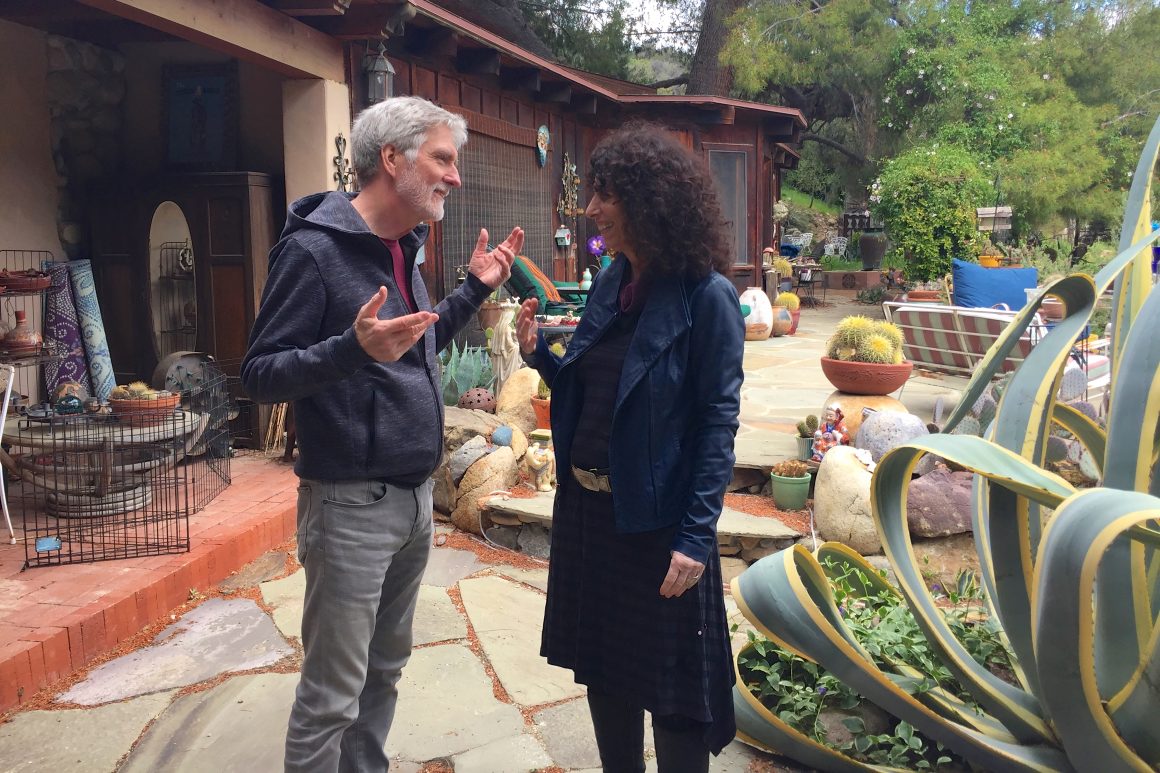
Assholes: A Theory looks for solutions
By Troy Hasselman, September 24 2019 —
Assholes. Why are they like that? Who are these people? Why are there so many of them? A new documentary from Canadian filmmaker John Walker takes a look at the social phenomenon of assholery and how they came to be such a pervasive force in our society. Assholes: A Theory is screening as part of the Calgary International Film Festival (CIFF). The film is based on the 2012 moral philosophy book of the same name by University of California professor Aaron James.
The documentary uses the definition of an asshole from Aaron James’s book, which is someone who “allows himself to enjoy special advantages in social relations out of an entrenched sense of entitlement that immunizes him against the complaints of other people.” The film takes a look at different case studies of asshole behaviour in the political, financial and entertainment realms.
The documentary notably looks at the institutional examples of the behaviour in organizations such as the Royal Canadian Mounted Police (RCMP). A sizable portion of the film is devoted to the experience of Sherry Lee Benson-Podolchuk during her two decades in the RCMP, where she endured severe bullying and harassment at the hands of her colleagues. This is one of many examples of asshole behaviour on an institutional level which the documentary looks at, showing how the behaviour can saturate an organization in a top-down fashion.
“Sherry nails it in terms of the institutional issues,” John Walker says. “If the person on top, your boss, your leadership, is behaving in this manner, then it filters down. In other words, big assholes produce little assholes. If your boss is behaving in this manner, then you’ll want to emulate your boss to please them. It becomes a culture of assholery, and it really starts at the top and if it’s at the top, then it’s a problem. In financial institutions, people might come into the job not intending to behave that way and don’t necessarily have that type of personality, but they become that way to fit into the culture. That’s why we use some of the examples of Wall Street and the language that they use. It becomes a culture that infects everyone, almost like a disease.”

The film use notable examples of public assholes like musician Kanye West or former Italian Prime Minister Silvio Berlusconi. Although these two are discussed at length, they are not interviewed in the movie.
“I wasn’t that interested in talking to assholes,” Walker says. “Because first of all, the so-called proper assholes don’t see themselves that way, and you know, what would I have a conversation with them about? I really wasn’t that interested. I did choose to talk to some younger folks who are influenced by Kanye West — that’s their hero and they emulate that behaviour and think it’s cool to behave that way. I do have a concern for younger people who see that behaviour as cool. I was interested in talking to younger people and hope they can grow out of that behaviour.”
Despite their obvious drawbacks, people are often charmed by, and attracted to, assholes. People can be drawn to their confidence or ability to draw attention to themselves, Walker explains.
“One of the people we talk to is Geoffrey Nunberg who said that ‘Oftentimes the asshole might say things that we would like to say but don’t really want to say.’ So maybe they’re speaking some truths,” Walker says. “They’re also entertaining —the quiet mouse-like person in the corner isn’t attracting attention because they’re unobtrusive. Whereas the asshole is catching our attention because they’re up to all kinds of antics. It’s important to note that to be a successful asshole, you have to be smart, intelligent and have a sense of humor. For example, if you have a bad artist whose work is not good but they’re an asshole, they’re going to be in trouble. But, if you have a great artist who is an asshole, you’re going to be more tolerant of their behaviour. It’s the danger of the successful asshole, that people think ‘Oh, I have to take that route to be successful,’ and again that’s why we counter that with, ‘You don’t have to be that way to be a success.’ ”
The movie speaks on assholes in the political realm extensively. It primarily focuses on Berlusconi and his impact on Italian politics. A certain notable political asshole is not mentioned in the movie. Walker says this is intentional.
“The point is, assholes in the public eye are encouraged and emboldened by attention, particularly by the media,” Walker says. “The media clearly loves assholes. The media are fascinated with assholes and they give them attention, and that is exactly what they want and that emboldens and empowers them. My point of ignoring one of the biggest assholes was partly to make that point. When we are talking about Berlusconi, he is really the precursor to who we are talking about. In a way, a different, more intelligent asshole. He’s the elephant in the room and clearly everyone would be thinking about him by dealing with Berlusconi — and he was in power for 30 years so he’s a more interesting character. Also his behaviour is more relevant to understanding now. He was the first one in a European context.”

The movie looks at asshole behaviour as one that is historically masculine. While women can certainly exhibit negative behaviours, the qualities of what makes one an asshole as defined by the film and Aaron James’ book puts it through a masculine lens. This is backed up by an interview with British comedian John Cleese used in the movie. The movie also uses examples of sexual harassment and wage pay gaps for women as examples of this behaviour.
“It’s interesting that Aaron James and John Cleese confirm that it’s predominantly a male behaviour. Cleese said it’s probably 99 per cent, but also claims that his mother was an asshole,” Walker says. “There’s a long history of male sense of entitlement over women and treating women as second-class citizens. We don’t pay women as much. In terms of sexual behaviour, we use the example of Harvey Weinstein. The sense of entitlement of ‘If you want to work with me, you’re going to play the game.’ I think men have a particular sense of entitlement when it comes to their relations with women. This doesn’t mean women can’t be nasty or be bullies, but it doesn’t come out of a sense of entitlement. So it’s not the same kind of asshole behaviour. It clearly defines a particular male in their approach to the behaviour but it’s not a science. The book is based on moral philosophy.”
Walker hopes this movie has the impact of inspiring people to recognize and speak out about asshole behaviour and look at ways to stop the rising tide of assholes in our world.
“I want to empower people to name this behaviour,” Walker says. “If your boyfriend, your family member or your boss is acting this way and affecting you in a negative way — mistreating you, not respecting you and making your life miserable — I hope we’re naming this behaviour and saying it’s okay to push back against this behaviour and say this behaviour isn’t acceptable. It’s a pushback film and I hope it empowers people to say ‘No, this is not acceptable.’ ”
The movie does look at organizations that have made attempts to solve the problems of this behaviour by instituting directives such as the “No Asshole Rule” which has been adapted as part of the hiring processes of the finance company Baird and Cornell Law School.
“If institutions are having trouble with assholery, there’s a solution,” Walker says. “Have a ‘No Asshole Rule’ and don’t hire them. If you find out you’re dealing with an asshole, then you fire them. It’s a very solution-based film in that sense. It’s an activist-based film. We can actively push back, and we need to push back against this behaviour.”
The movie will be screening at Eau Claire Cinema on Sept. 28 and 29. If you or someone you know is an asshole, information about preventing, calling out and overcoming this behaviour can be found at their website.
